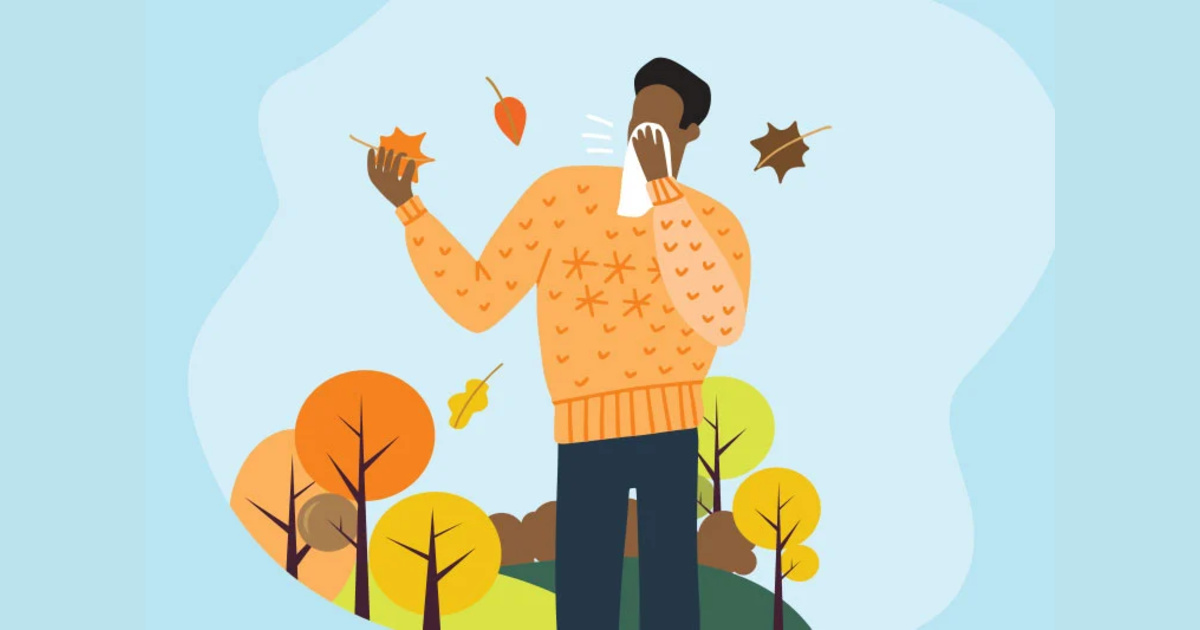Have you noticed the change in the air lately? Fall allergy season is sneaking in. Let’s dive into what you need to know to tackle the challenges.
It’s fall allergy season. Here’s what you need to know
During the fall allergy season, it’s crucial to be aware that, like spring allergies, autumn allergies can also affect a significant number of individuals.
Dr. Tania Elliott, Chief Medical Officer at Nectar Allergy, emphasizes that the severity of fall allergies can surpass spring allergies depending on one’s specific allergens.
The primary culprit for fall allergies is typically ragweed, a wild plant that releases pollen from August to November, according to the American College of Allergy, Asthma & Immunology (ACAAI).
However, various other plants can trigger fall allergies, including burning bush, cocklebur, lamb’s quarters, pigweed, sagebrush, mugwort, tumbleweed, and Russian thistle, as noted by the ACAAI.
Fall allergies should not be underestimated, warns Dr. Elliott. Neglecting treatment can lead to significant health consequences rather than just being an inconvenience.
These allergies can significantly impact one’s daily life. Allergist and immunologist Dr. Purvi Parikh explains that the medications commonly used for allergies and asthma can induce drowsiness and lethargy. Additionally, the symptoms themselves, such as congestion, coughing, and difficulty breathing, can disrupt sleep and contribute to fatigue.
The consequences of fall allergies extend beyond sleep disruption. Over 3 million workdays are lost each year in the United States due to allergies, significantly affecting productivity and causing difficulty concentrating.
There is even an increased risk of depression associated with chronic illnesses like allergies, which can lead to fatigue and mood disturbances, creating a vicious cycle, according to Dr. Elliott.
Taking care of loved ones with fall allergies can also take a toll on caregivers’ mental health, warns Kenneth Mendez, President and CEO of the Asthma and Allergy Foundation of America. Therefore, it’s essential to find ways to support both the affected individuals and caregivers themselves.
Furthermore, fall allergies can trigger other immune responses, such as skin rashes like eczema, atopic dermatitis, or hives. Allergist Dr. Parikh notes that these conditions tend to worsen during peak pollen seasons and can be debilitating.
Asthma is another condition that can be aggravated by allergies, making it particularly dangerous for allergy sufferers, as allergies are a leading cause of asthma.
Kenneth Mendez highlights the importance of heightened vigilance towards the end of September, known as “peak week,” when emergency room visits for asthma tend to spike due to fall allergies and the return to school.
If individuals suspect they have fall allergies, it is crucial to consult a doctor. Dr. Parikh emphasizes that allergies should not be endured needlessly, as effective treatments are available to alleviate symptoms and improve quality of life.
Fall allergies can disrupt your sleep, diminish your quality of life, and trigger other health issues. Don’t suffer in silence—seek treatment and take control of your well-being.








Leave a Reply
You must be logged in to post a comment.